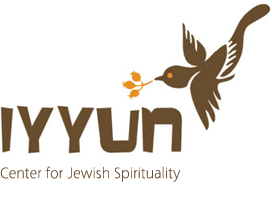12 Step Meditative Program for Elul
To properly prepare ourselves to enter into the New Year, or any new beginning for that matter, we need to consciously deal with all that is old, stale, and outdated in our lives before we can fully move into the future. First we need to empty ourselves from the past, to fill ourselves with a new future.
We do this by engaging in a process referred to by the sages as Chesbon Ha’Nefesh or “Accounting of the Soulâ€.
Cheshbon Ha’Nefesh occurs when we survey the past year, own up to each experience, and take responsibility for all that has transpired. It is only then, after we have gathered up and grabbed a hold of our past year in all its details, that we can really let it all go so that we can move forward into the promise of a new future.It is commonly understood that we cannot progress if we are stuck to our past, a full cup cannot be filled.
To truly begin anew, the old reality must be put to rest.
So as Rosh Hashanah is approaching, we should do a complete review of the past year, and when Rosh Hashanah begins we can let it go and move on. A true Cheshbon Ha’Nefesh requires us to go through the year, month by month, to review, reclaim, and refine all of our past experiences. As we do this, there are a few helpful hints that we can keep in mind to organize and contextualize the details of this spiritual accounting.
Each month of the year has a particular energy, so while you go through the past year month by month, you can think about a particular month, as well as all the issues of the year that are related to the energy of that month.
This means that if it’s a time of thinking about relationships for example, corresponding to the month of Teves, you can think about the relationships of that particular month, but also about all the relationships you had over the past year.Awareness of each month’s energy/quality can serve to focus your reflection upon a particular month, as well as provide an archetypal perspective upon the many dimensions of a full year.
This is especially important for the final 12 days of the month of Elul, as each day corresponds to a particular month of the year. Elul comes at the end of the solar cycle, as counted by the Hebrew calendar, and before the new Solar year begins. So at the end of that cycle, for the final 12 days, we reflect upon and revisit the past year.
This is similar to the first month of the lunar cycle, as counted by the Hebrew calendar, the month of Nisan, wherein the first 12 days of the month correspond to the 12 upcoming months of the year.So at the beginning of the next cycle, for the first 12 days, we project and envision positivity and blessing for the upcoming year. We can see from these two transitional moments that every changing season (physically and spiritually), is a time to take account, to either look back upon the past, or to project into the future.Included below is a list of the Hebrew months, their corresponding qualities, and some suggested questions for reflection.To begin, gently close your eyes and review your past year, month by month, starting with last year’s Tishrei and moving on from there:
1) Tishrei (Sep-Oct):
Resolutions and Commitments— What resolutions did you take upon yourself last year? What promises did you make last Tishrei? What goals did you set? Have you achieved them?
2) Chesvan (Oct-Nov):
Transformation— During this time the seasons change and turn from fall to winter, it gets colder and darker. Think about the transformations in your life that occurred last year? Which were your own doing and which were situational or circumstantial? How did you respond to the challenges of change?
3) Kislev (Nov-Dec):
Miracles— Think about the miracles in your life. What extraordinary events happened to you last year? Did you find a spouse, fall in love, land a dream job, or make a significant breakthrough? How did you handle these miracles and movements? Did you integrate them? Were you thankful for them as they occurred?
4) Teves (Dec-Jan):
Relationships— How were your relationships this past year? Think about your parents, siblings, spouse, children, friends, co-workers, even enemies. Did you improve your interpersonal relationships with others? Where did you fall short? Where were your successes?
5) Shevat (Jan-Feb):
Eating—Eating is one of the primary appetites that we must work on to refine our character and live a truly conscious and spiritual life. How was your relationship to food this past year? Healthy? Obsessive? Disciplined? Neurotic? Where you able to let go and enjoy yourself when appropriate? Were you able to exert your will and define your boundaries when necessary?
6) Adar (Feb-Mar):
Joy— What were the truly joyous moments of your past year? What made you laugh? What made you sing? What made you dance? What made you weep with joy? Did you grow or learn from the joy you experienced in the past year?
7) Nisan (Mar-Apr):
Redemption and Liberation— Think about the issues in your life that you were able to release yourself from this past year. This can be in the form of certain difficulties that you overcame, particular patterns or habits that you broke, or relationships you evolved from or evolved within. Do you feel truly free from them? If not, what else might you still need to do to more fully move on?
8) Iyyar (Apr-May):
Healing— Healing is being true to yourself on the deepest level. What ailments or challenges did you experience over the past year? What did you do to help or hurt your own healing process? Remember that healing can happen on all levels of your being. Don’t just confine this reflection to the physical realm. Go deep.
9) Sivan (May-Jun):
Torah— What you have learned this year? Have you integrated those teachings? Did you truly “receive†the Torah this past year?
10) Tamuz (Jun-July):
Destruction— It was during this month that the ‘walls of the Temple’ were breached. Although the Temple does not fully fall until the month of Av, we meditate on the process and beginnings of disintegration during the month of Tamuz. Think about all the losses you experienced in your past year. What have you lost? Whom have you lost? How you are dealing with these losses?
11) Av (July-Aug):
Reconciliation— Although most commonly characterized by the total destruction of both the first and second Temples, we choose to focus on the perennial question, “what next?†that follows complete collapse. This corresponds to the teaching that “the Moshiach will be born on Tisha B’Avâ€, the day of complete destruction. What restorative steps did you pursue last year in broken areas of your life? How have you tried to repair or redeem aspects of yourself, your relationships, or the world? Have you volunteered your time or energy to people in need? Have you reached out to someone you have not been in contact with for a long time? How are these projects or processes going?
12) Elul (Aug-Sept):
Soul Searching — Have you been honest with yourself this past year? Were you able to really look at your life and yourself deeply and critically? Were you able to judge yourself favorably and lovingly? Think about the times that you were really honest with yourself, how did it feel?
Once you have gone through the year, owning up to and taking responsibility for all your mishaps and successes, now it is time to move into the more proactive consciousness of looking at the present as a gift of the eternal now — literally, a new beginning.
When we begin anew, and we can always begin again at any moment, we need to think that, in the words of Rabbeinu Yonah, “The foundation of teshuvah is considering today as the very day you were born, the first day of your life, and you have no demerits or merits.â€
Every moment is new. The Ko’ach ha-Hischadshus, or ‘Power of Renewal’, is present within every moment of Creation.
There are no two moments alike.
Yet, at the same time, all the newness of the entire year flows from Rosh Hashanah.
Rosh Hashanah is the reservoir and wellspring of newness and initiation that ripples out to the rest of the year. Now is the time to activate and access that initiatory energy.This means that Rosh Hashanah brings down newness for the entire year.
Rosh Hashanah, which literally means ‘Head of the Year’, is not just a beginning or a starting line, but a head. And just as the head contains the consciousness of all that transpires in the body, so too Rosh Hashanah is that essential node through which all the vitality of an entire year travels.
Rosh Hashanah is the renewal of time, as well as the nerve center through which all directions of time flow.
On Rosh Hashanah, there is a total cosmic renewal, and by attuning ourselves to this awesome day, we can achieve a sense of renewed vitality on all levels of our being — a radical renewal in time, space, and soul -consciousness.
With blessings for a K’sivah and Chasimah Tovah
Rav DovBer Pinson







